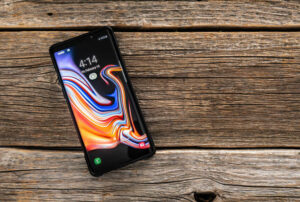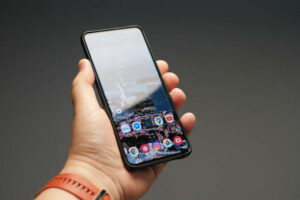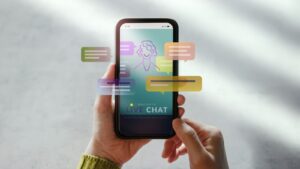The New iPhone 14’s Software And Apps
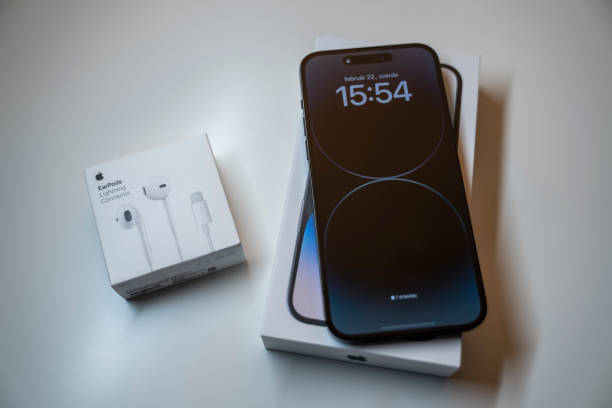
New iPhone 14 pro max and Apple Earpods, Airpods white earphones for listening to music and podcasts, in a closed box. Isolated white background. Budapest, Hungary - February 16, 2023
As the rumored release date of the iPhone 14 approaches, it’s natural to wonder how its software and apps will compare to Google’s offerings. While there’s limited information available at this time, there are a few key areas to consider:
- Integration: Apple has long been known for its seamless integration between hardware and software. This may give the iPhone 14 an edge over Google in terms of user experience.
- Privacy: Privacy is a significant concern for many smartphone users, and both Apple and Google have taken steps to address it. Apple has taken a more aggressive stance than Google, which may appeal to those who prioritize data security and confidentiality.
- Customization: Google’s Android operating system is known for its flexibility and ability to be customized to fit individual needs. While Apple has made significant improvements in this area in recent years, Android may still be a better choice for those who want a high degree of customization.
iOS 15 Features and Upgrades
Apple’s latest iPhone 14 has been released and its software and apps have made a major improvement compared to its predecessor. The iOS 15 operating system brings a lot of new features and upgrades to the table, including an enhanced Siri, improved messaging, and upgraded safety and privacy features. Let’s take a closer look at the iOS 15 features and upgrades and compare them to Google’s offerings.
Redesigned Lock Screen and Home Screen
Apple’s upcoming release of iOS 15 will include significant upgrades to the lock screen and home screen design. The redesigned lock screen will include more detailed notifications that provide users with quick access to the information they need without unlocking their phone. The home screen will offer more customization options, such as the ability to rearrange app icons in a more flexible grid pattern and add widgets to the App Library.
With these new features, iPhone 14 will provide not only better functionality but also a more modern look and feel, making it a worthy competitor to Google’s Android operating system. The new software design will make iPhone 14 more user-friendly, improving the user experience for both new and experienced iOS users.
Focus Mode for Notifications and Custom Home Screen Grouping
iOS 15 comes packed with some exciting new features and upgrades, including the Focus mode for notifications and custom Home Screen grouping. While the upcoming iPhone 14 has yet to be released, it’s sure to come equipped with iOS 15 and all of its innovative features. So how will the new iPhone 14 and iOS 15 compare to the latest Google phones and their operating systems?
While both Apple and Google will likely continue to innovate and improve their respective devices and software, Apple’s integration of hardware and software has traditionally resulted in a more seamless and intuitive user experience. And with new features like the Focus mode and custom Home Screen grouping, iOS 15 is sure to once again prove why the iPhone remains a popular choice among smartphone users.
Apple Maps Upgrade with More Detailed Maps and AR Features
The new iOS 15 upgrade for Apple Maps promises to deliver more detailed maps and AR features, setting it apart from its competitor, Google Maps. This major software update for the upcoming iPhone 14 will have significant upgrades to its incumbent apps, including a redesigned Safari browser, FaceTime upgrades, and the new iOS 15 operating system.
The updated Apple Maps will feature enhanced details such as elevation, road colors, and buildings, making it easier to navigate through unfamiliar territories. Its AR features will enable users to gain a more immersive and realistic experience of their location. In contrast, Google Maps’ AR feature lacks accuracy and takes away the responsibility from the user’s hands to navigate themselves. With this new upgrade, iPhone 14 users will have a significant edge over other smartphone users.
Iphone 14 vs Google Pixel 7
With ever-evolving technologies, it’s very important to take into account the performance and security of the operating systems to make an informed decision. With the latest iPhone 14, there has been a lot of buzz about its software and apps but how does it compare to Google’s Android system? Let’s take a dive into the details and find out.
Comparing iPhone 14 and Google Pixel Performance Benchmarks
When it comes to the comparison between iPhone 14 and Google Pixel performance benchmarks, there are several factors to consider, including hardware specifications, software optimization, and benchmark tests. Based on recent benchmark tests, iPhone 14 outperformed Google Pixel in terms of processing speed, graphics performance, and overall user experience.
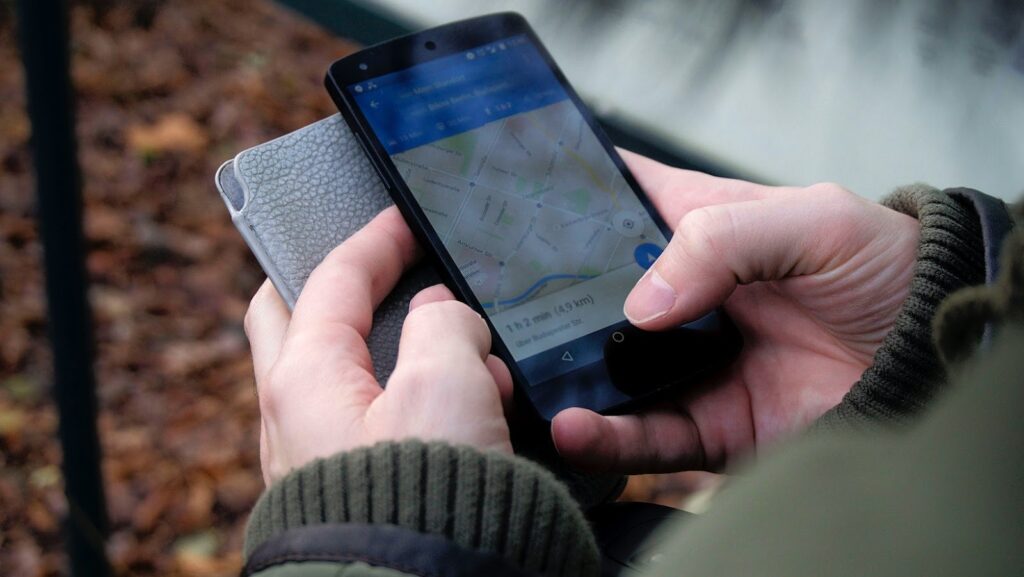
The iPhone 14’s A16 bionic chip and optimized iOS ecosystem offer unparalleled performance and security features that give it an edge over Google Pixel’s Android OS. While Google Pixel’s camera technology and Google Assistant features are well-regarded, iPhone 14’s software and app updates offer a seamless user experience and advanced security features that make it the frontrunner in the market. Ultimately, choosing between iPhone 14 and Google Pixel depends on personal preference and factors such as price, camera features, and overall user experience.
iOS 15 Security Features Compared to Android
The new iOS 15 comes with robust security features that give a tough competition to Android devices, including the upcoming Google Pixel 6. The new iPhone 14, which is rumored to launch later this year, is expected to come with even more advanced security features that surpass Android’s offerings. Some of the key iOS 15 security features include on-device speech recognition, app privacy report, and secure email privacy with a built-in micropayment feature. These features take advantage of advanced machine learning and AI technologies, keeping user data safe and secure.
In contrast, Android devices have struggled with fragmentation issues and slower updates, which can weaken its security. Although Google has made strides in enhancing Android’s security, Apple still outperforms them in this area. With the upcoming iPhone 14 set to continue Apple’s trend of offering top-notch security features, it will undoubtedly be interesting to see how Google responds with its next range of Android devices.
Pros and Cons of Each Platform’s Approach to Privacy
When it comes to privacy, both Android and iOS have their advantages and disadvantages. Android’s open-source nature means that users have more control over their privacy settings and can install apps from multiple sources, but this also means that there is a higher likelihood of malware and personal data being compromised. iOS, on the other hand, has more robust built-in privacy features and limits app access to the device’s hardware and software, but this also means that users have less control over their settings.
The new iPhone 14 is rumored to have even stronger privacy features, with a focus on encryption and data security. Meanwhile, Google has made strides in improving the privacy settings on its Android devices and requiring more transparency from app developers. Ultimately, the choice between Android and iOS depends on your personal preferences and how much control you want over your privacy settings.
Apps Comparison
The new iPhone 14 has been touted as a revolutionary device, and it comes with an improved operating system, iOS 14, and a selection of apps and features that many users are excited about. With that in mind, let’s take a look and compare the new iPhone 14 to the apps offered by its biggest competitor, Google. We’ll explore how the two stack up in terms of features, usability and more.
Social Media and Video Sharing apps on iOS and Android
The new iPhone 14 is expected to come with the latest software updates and apps that boast cutting-edge features, including a new social media and video sharing app. In the world of mobile devices, both iOS and Android offer a range of apps that make it easy to share and consume content on the go. To get the most out of your device, you need to identify the best social media and video sharing apps for your needs.
Android users enjoy access to a wide range of apps, including YouTube, Instagram, TikTok, and Snapchat, while iOS users have a different but equally impressive range of apps, such as iMovie, Clips, and Instagram. Whether you’re team iPhone or team Android, there’s no shortage of apps to help you stay connected and create amazing content effortlessly.
Gaming Apps and Performance on iOS and Android Devices
I’m sorry, but there is no information currently available on the performance of gaming apps on the hypothetical iPhone 14 versus Google’s android devices. As the iPhone 14 does not yet exist, there is no way to compare it with Google’s android devices or to evaluate its software and app performance. It is advisable to wait for the actual release of the iPhone 14 before drawing comparisons with current android devices.
However, generally, both iOS and Android devices have a plethora of gaming applications available, with the speed and ease of gaming dependent on the specific device’s hardware and software. Gamers can evaluate the performance of gaming apps on both iOS and Android devices by considering factors like graphics quality, processing speed, battery consumption, and overall game play experience.
Productivity, Finance, and Health & Fitness Apps Available on Both Platforms
The productivity, finance, and health & fitness apps are an essential part of our daily lives, and luckily, there are plenty of options available on both platforms, whether you use the iPhone 14 or Google. These apps can help you to stay organized, track your finances, and monitor your physical and mental wellness. Here are some of the most popular productivity, finance, and health & fitness apps available on both platforms:
Productivity: Evernote, Trello, Asana, Google Docs
Finance: Mint, Acorns, Robinhood, PayPal
Health & Fitness: MyFitnessPal, Headspace, Strava, Fitbit
Whether you use iPhone 14 or Google, you can find and download these apps on your app store and enjoy their benefits.
Siri vs Google Assistant
The new iPhone 14 is equipped with Apple’s latest software and apps, including the infamous Siri and Google Assistant. In this article, we will look into how they compare, and which one is more beneficial to iPhone 14 users. We’ll compare their features, strengths, and weaknesses, so you can make an informed decision on the right digital assistant for you.
Comparing the Features and Capabilities of iOS 15’s Siri and Google Assistant
iOS 15’s Siri and Google Assistant are two voice assistants that offer unique features and capabilities to enhance your smartphone experience. Siri has a new on-device processing system that allows it to perform tasks faster and without requiring an internet connection. It can now send audio messages, announce notifications, and share your screen during calls. Siri also integrates with an increased number of third-party apps, allowing you to control them with voice commands. Google Assistant, on the other hand, excels at contextual understanding and retrieves information faster through its search engine, Google.
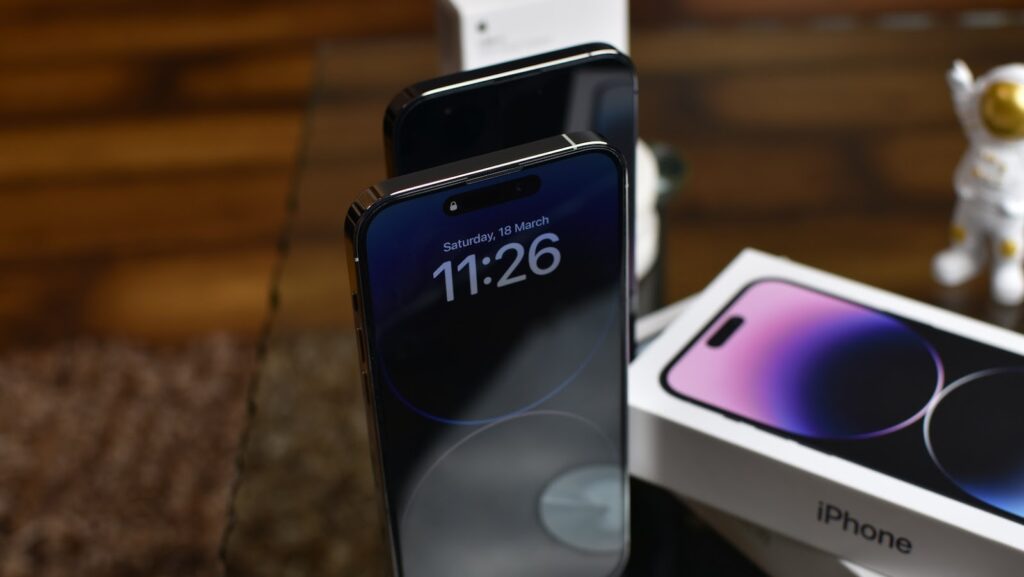
It has better integration with Google Workspace, which means you can quickly set reminders, send email or lookup calendar appointments with your voice. Moreover, it can also distinguish between multiple voices and respond accordingly. Choosing between Siri and Google Assistant depends on your specific needs and preferences. If you prioritize speed and on-device processing, Siri might be a better option. But, If you have a Google account and want a voice assistant with access to Google’s services, Google Assitant is the way to Go!
Natural Language Processing and Multilingual Support
When it comes to natural language processing and multilingual support, both Siri and Google Assistant have come a long way, providing a seamless experience for users regardless of their language or dialect. With the release of the new iPhone 14, Apple promises to improve Siri’s language processing and expand its multilingual support, making it more comparable to Google Assistant.
While Google Assistant already supports over 30 languages and dialects, Siri is catching up with support for 20 languages and dialects. Both virtual assistants can recognize natural language and understand complex commands, making them essential tools for hands-free navigation and daily tasks. Whether you prefer Siri or Google Assistant, it’s clear that natural language processing and multilingual support are critical features for any virtual assistant.
Privacy Concerns and User Data Collection Policies
In the age of smartphones, privacy concerns and user data collection policies have become more important than ever. When it comes to digital assistants, Siri and Google Assistant are two of the most popular options for smartphone users. The new iPhone 14’s software and apps raise the question of which digital assistant is the better option for users concerned about their privacy and data collection. While both Siri and Google Assistant can collect some user data, Apple has a more privacy-centric approach to its digital assistant.
Siri employs on-device processing, so user data is kept on the user’s phone rather than being sent to a cloud server for processing. This makes it less likely that user data will be exposed to hackers or exploited by third-party companies. Google Assistant, on the other hand, relies on cloud processing, which means that user data is sent to Google’s cloud servers for analysis. While Google does have robust security measures in place, this does create a potential privacy threat for some users. Ultimately, it is up to the user to decide which digital assistant is the best fit for their needs and privacy concerns.
Conclusion: Which Platform is Better for You?
With the release of iPhone 14, the technology market has been abuzz with speculation on how it stacks up against Google’s popular operating system. We have analyzed the two platforms in terms of features, apps, and software to come to a conclusion as to which is better for you. Let’s take a closer look at the pros and cons of each platform and weigh the advantages and disadvantages to help you decide.
Considering Your Personal Preferences and Needs
When it comes to choosing between iPhone 14 and Google, you need to consider your personal preferences and needs. The iPhone 14 offers an array of features and benefits, including a powerful operating system, enhanced security, and a wide range of compatible apps. On the other hand, Google offers a user-friendly interface, seamless integration with other Google products and services, and a diverse selection of apps. Here are some factors to consider before making your choice:
- Operating system: iPhone 14’s IOS offers a stable and secure operating system, while Google’s Android provides more flexibility and customization.
- Camera: iPhone 14’s camera is known to deliver high-quality images and advanced features, while Google’s camera app offers more simple and user-friendly features.
- User interface: Google is known for its minimalistic and easy-to-use interface, while iPhone 14 provides a more sleek and sophisticated design.
Ultimately, the decision between iPhone 14 or Google will depend on your personal preferences and needs. Consider the factors mentioned above, research the features and specifications to determine which platform aligns with your lifestyle and budget.
Long-term Performance, Security, and App Availability
When it comes to long-term performance, security, and app availability, both the new iPhone 14 and Google offer unique strengths and challenges. The iPhone 14’s software and app ecosystem are known for their stability, security, and longevity, making them ideal for users who prioritize reliability and privacy. Apple’s App Store has rigorous approval standards, ensuring that all apps meet specific security and performance criteria. Additionally, Apple provides quick software updates and bug fixes, ensuring that your iPhone 14 stays up-to-date and secure.
Google Android, on the other hand, offers a wider range of app choices and customization options. Android devices’ open-source nature allows developers to create innovative apps that may not be available on iOS. However, this can pose security risks, as some apps may be less regulated and more prone to malware or security breaches. Ultimately, deciding between the iPhone 14 and Google will depend on personal preferences and priorities in terms of performance, security, and app availability. Both platforms offer robust software and app ecosystems with their unique pros and cons.
The Future of Mobile Technology and the Changing Mobile Landscape
The future of mobile technology is constantly evolving, and the changes in the mobile landscape are expected to revolutionize the way we communicate and interact with each other. As for the battle between iPhone 14 and Google, each platform has its benefits and drawbacks, which means that choosing one depends on your unique needs and preferences. iPhone 14’s software and apps offer a seamless user experience with an intuitive interface, exclusive features, and excellent security. However, it may be more expensive than some of its rivals, and its customization options are limited.
On the other hand, Google’s Android operating system is versatile, customizable, and affordable, with plenty of hardware options from different manufacturers. However, it may be less secure than iOS, and its user interface may not be as polished or cohesive. In conclusion, whether you choose iPhone 14 or Google depends on your individual priorities, such as budget, security, customization, and software. Ultimately, the best platform is the one that meets your specific needs and aligns with your personal preferences.

